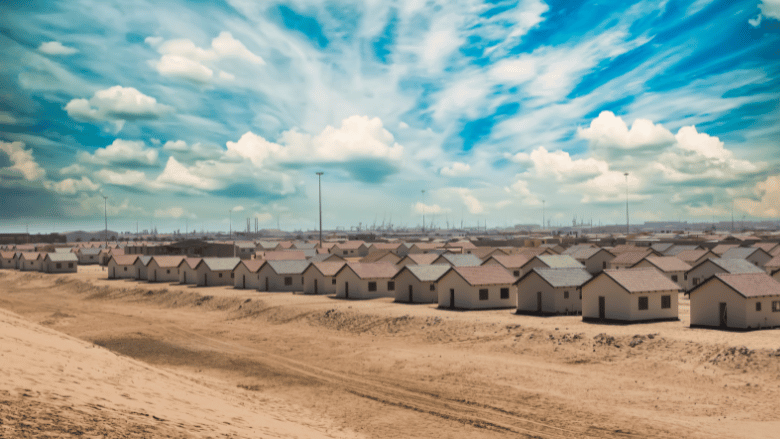
The demand for investment in the affordable housing sector has never been greater. More than one billion people live in slums globally – a figure that is expected to double by 2030 – and another 1.6 billion live in sub-standard housing. More housing will need to be built between now and 2050 than has been built in the last 6,000 years!
The challenge goes beyond the bricks and mortar business of simply building enough housing – a formidable task on its own – but requires innovative solutions that expand access to green, resilient, and affordable homes, at scale.
While public policy will play a crucial role, the estimated $16 trillion financing gap cannot be met without significant private sector participation. Harnessing such resources will require persuading the private sector that green, affordable housing is both possible and profitable. Fortunately, the field is moving rapidly.
On the supply side, the heightened focus on green housing presents an opportunity to think about housing as a “global public good” – something that benefits everyone, everywhere. Through this lens, policymakers can encourage developers to build green by providing green housing subsidies in emerging markets where poor construction is a major contributor to carbon emissions. In Colombia, where IFC is working with partners to scale up green financing, the government has introduced tax incentives to encourage green building and affordable housing. India, meanwhile, has been a leader in unlocking housing finance for low-income populations and increasing the number of green, affordable homes.
Designers are working with financiers on pioneering techniques to retrofit and make incremental improvements to existing structures. Entrepreneurs are disrupting the housing market with climate-smart affordable homes that demonstrate the commercial viability of designing green for low-income populations. Similarly, IFC’s EDGE certification is unlocking financial investment by enabling developers to scale up resource-efficient buildings and quickly identify the most cost-effective strategies to reduce energy use.
Public private partnerships are likewise paving the way for commercial developers to build more quality affordable housing – such as IFC-led projects in Côte d'Ivoire and Papua New Guinea. By helping to navigate bureaucratic bottlenecks and accelerate timelines for investors and commercial developers, PPPs are a critical link in expanding green, affordable housing.
On the demand side, technologies such as blockchain, mobile money, machine learning, and PropTechs are enabling banks and other lenders to assess creditworthiness in new and more efficient ways, opening doors for those employed in the informal economy and vastly expanding the pool of potential consumers.
This sort of inclusive financing is essential for women in developing countries in particular, as they comprise half of the population but only a small fraction of homeowners and largely work in informal sectors, leaving them at a disadvantage when it comes to accessing finance. Mortgage lenders are learning from the experiences of some financial institutions that figured out how to use alternative credit scoring models and gender-disaggregated data to tailor their products and services for women-owned and informal SMEs. A process that took many years to unfold can now be applied to the housing sector. Rent-to-Own schemes, an expanding area for IFC, provide a pathway to homeownership for those who can pay rent but lack the savings and credit history necessary for a down payment and mortgage application.
Against this backdrop, experts from across the entire housing value chain convened recently for the 9th Global Affordable Housing Conference, hosted by the World Bank Group. As participants at the conference made clear, the crisis will require collaboration across governments, financiers, and developers, among other stakeholders from the public and private sectors. IFC is the leading international investor in housing finance in emerging markets. We work on many of the above initiatives, engaging at the market level and providing catalytic financing and advisory services, ensuring more people have access to safe, sustainable, and affordable housing.


Join the Conversation